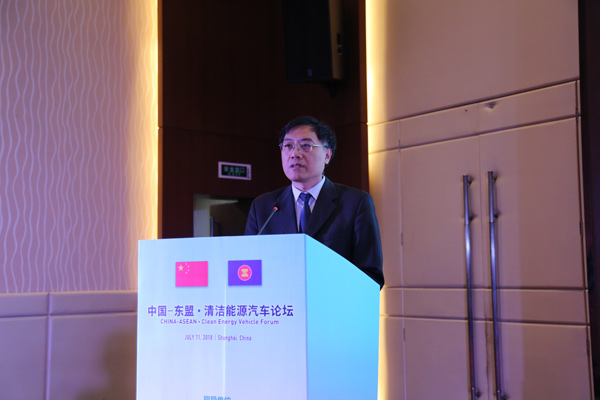China-ASEAN to cooperate on new energy vehicles


China and the Association of Southeast Asian Nations pledged to deepen cooperation in new energy car development, especially in realms such as technical exchange, regulations and public services, officials and experts from both parties said on Wednesday.
Effective exchange mechanisms including summit forums, technical seminars and onsite visits, will play a vital role in strengthening China-ASEAN trade and investment ties, said Han Jianping, deputy director of the department of international organizations and conferences at the State Administration for Market Regulation. Han made the remarks at the China-ASEAN Clean Energy Vehicle Forum in Shanghai.
"We strive to create multiple platforms to facilitate the exchange of views on product, technology, spare parts and waste disposal during the entire (new-energy vehicle) production cycle," said Cheng Yun, deputy division chief of the trade development bureau at the Ministry of Commerce.
Combined, the ASEAN is the world's sixth-largest economy and has a combined population of 635 million, spelling huge potential for the development of electric cars according to Heru Nugroho, chairman of the automotive product working group at the ASEAN Consultative Committee on Standards and Quality.
While member states have rolled out incentives such as preferential tax rates and subsidies, they still lack consistent technical standards and corresponding infrastructure to bolster the industry's development in the long run, said Emjunan Sihite, an executive from the Association of Indonesia Automotive industries.
China has ample experience to share when it comes to developing new energy vehicles and ironing out technological glitches for economies that are still at the preliminary stage, Nugroho noted.
The production and sales volume of China's new energy vehicles stood at 794,000 and 777,000 in 2017, topping the world for three consecutive years, according to the Ministry of Industry and Information Technology in March.
It has also made headway in the construction of charging infrastructure. By 2017, the number of public charging piles built in the country climbed to 214,000, up 51 percent year-on-year and ranking first in the world. The installation rate of private charging piles also surpassed 80 percent.
The conference will pave the way for regular contact that can extend to areas like technical research, management experience-sharing, regulation coordination and testing services, said Cang Xuejun, vice-president of the Shanghai Motor Vehicle Inspection Certification and Tech Innovation Center, a national-level lab for automobile inspection.
"China now boasts over 2 million new-energy vehicles and holds more than 100 technical standards," Cang said. "We are in a good position to share our expertise and experience with the ASEAN nations and help them grow."




































